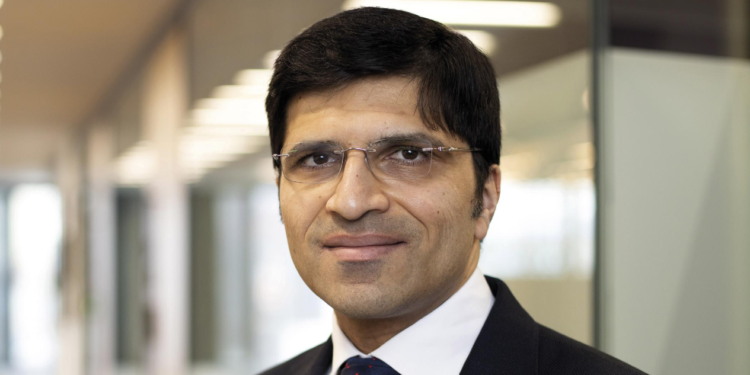The Financial Conduct Authority (FCA) plans to examine how big tech firms’ unique access to large sets of data can unlock better products, more competitive prices and wider choice for consumers and businesses, according to Nikhil Rathi, CEO of the FCA.
In a speech at a Digital Regulation Cooperation Forum (DRCF) event, Rathi (pictured) outlined his focus on big tech as chairperson of the DRCF.
He said: “Leading a co-ordinated and effective effort to make the most of the opportunities of big tech – while having an open conversation about the risks and what can and cannot be mitigated – will continue to be a priority.
“We are outcomes focused at the FCA, pro-innovation and technology neutral.”
He added: “The dominance of a handful of firms and further entrenchment of powers will imperil competition and innovation.
“And, alongside promoting effective competition, the FCA has a primary objective to protect consumers from harm.”
He noted that there is also a risk that big tech firms could become the primary access channel for retail financial services.
“This could squeeze out innovation from small players and also discourage the incumbent legacy institutions from continuing to invest,” he said.
Rathi also spoke on the FCA’s response to the government’s White Paper on artificial intelligence (AI) which was also published today.
Currently, big tech firms can access financial services data through open banking but are not required to share their data with the financial industry.
The FCA’s big tech plans are included today in a feedback statement to its call for input on data sharing between big tech and financial services firms.
If the FCA’s analysis finds big tech data is valuable in financial services, it will look to incentivise more data sharing between big tech and financial firms through its open banking and broader open finance work.
If it finds potential risk or harms from non-sharing of data it will also look to develop proposals for the Competition and Markets Authority (CMA) to consider when they are given powers to regulate designated firms’ digital and data conduct, expected via the Digital Markets, Competition and Consumers (DMCC) Bill.
The FCA said it also continues joint work with the Bank of England and the Prudential Regulation Authority (PRA) on the role of critical third parties (CTPs) and artificial intelligence (AI).
Rathi said: “Big tech’s growing emergence in financial services has already made life easier for consumers, but it is still unclear how valuable their data will become in financial markets.
“That’s why we want to work with big tech to examine how their data could be most helpful for financial firms and their customers in future, and to ensure competition evolves effectively.”
In conclusion Rathi said: “In five years’ time I don’t know what the top five global companies will be, what DRCF will then be focused on.
“But I hope from today’s event you can gain some assurance that there is a clear recognition here in the UK and by this group of regulators that a coordinated approach is crucial to make the most that technological progress has to offer.
“Digitisation has broken down borders; it is for us to make sure our regulatory barriers are effective, proportionate and pro-innovation.
“Without industry, there would be no innovation, so your engagement is vital.
“As regulators we stand ready to co-ordinate efforts to make sure that these developments are sustainable and future proof for our firms, our markets and consumers.”






